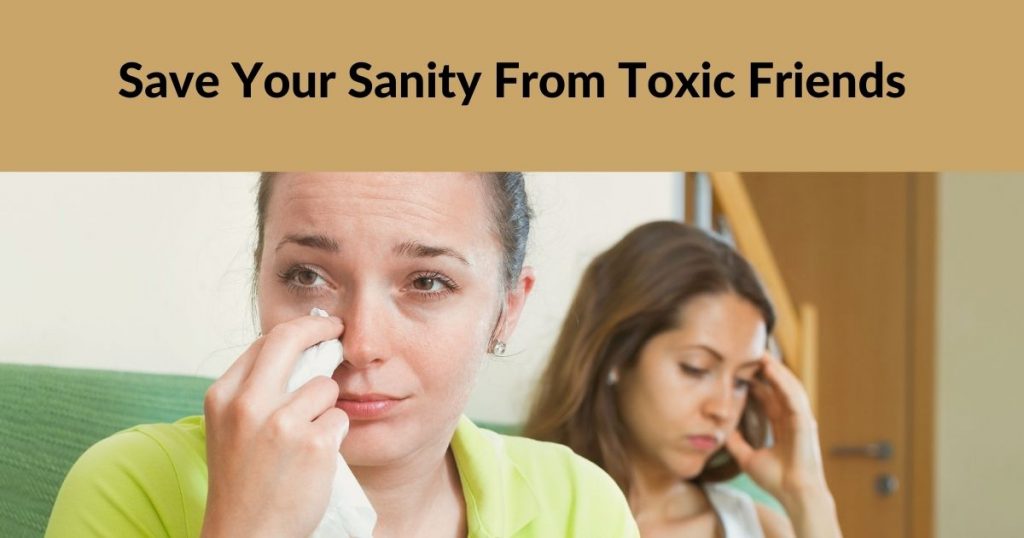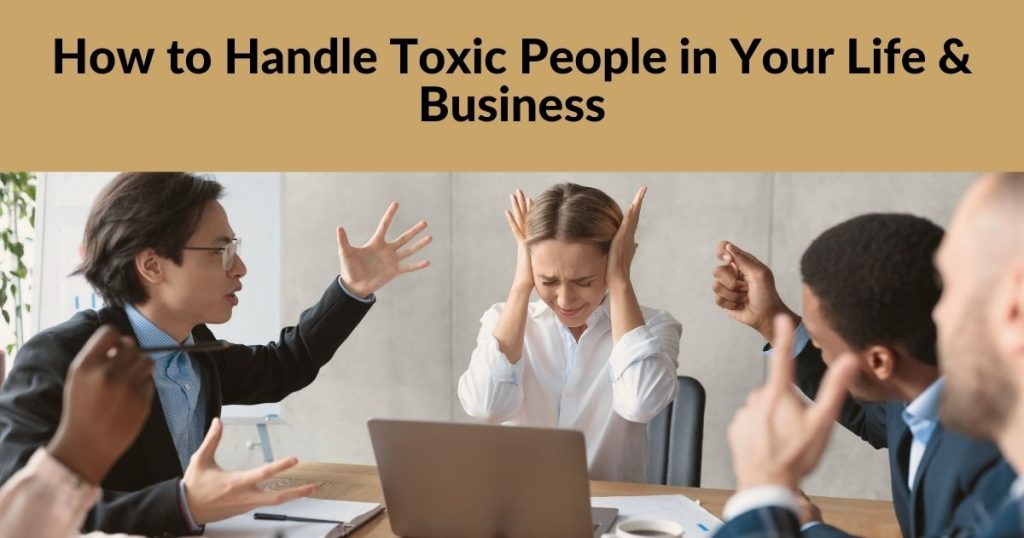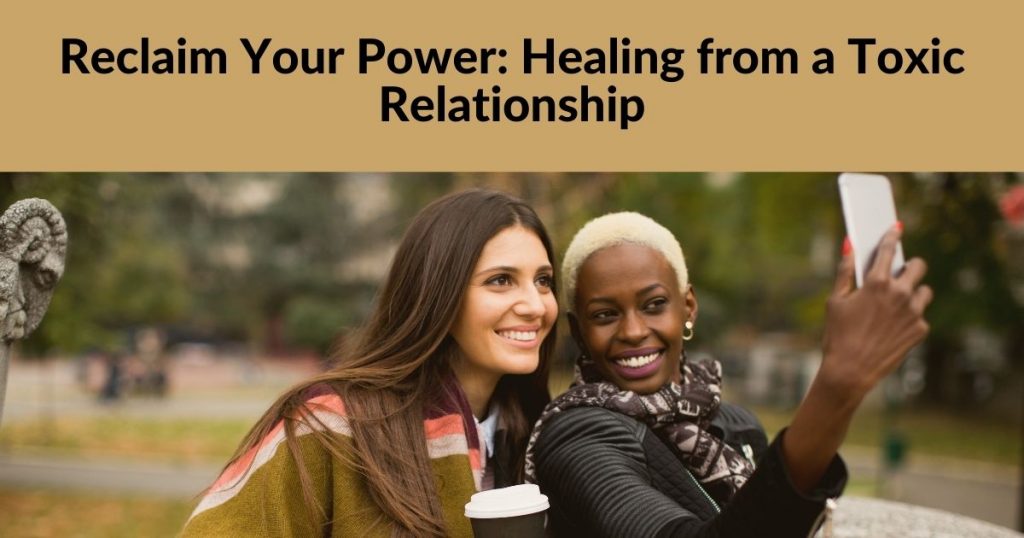 Save Your Sanity From Toxic Friends
Save Your Sanity From Toxic Friends
You have the one friend or client that is toxic. You know this and you wonder why this person is still in your life. Why haven’t you ended the relationship? The reason isn’t that you’re weak or that you’re a bad person.
The real reason is that toxic people are very good at manipulating others. Often, they seek to control you and they do it so subtlety that it’s easy to miss the warning signs. That’s why it’s important that you know the tactics that toxic clients and friends use.
Tactic #1: Intimidation
A toxic friend or client often uses intimidation and fear to keep you in line. Sometimes, these tactics can be hard to recognize. It might be the veiled threat that a client will badmouth you in the industry or that a friend will “accidentally” slip up and share a secret about you with the rest of your community.
Sometimes, the threats aren’t veiled, such as the client that says he’ll leave a bad review of your services if you don’t give him a discount. The goal of intimidation is to get you to back down. Your best option is to act unaffected. If you show fear or concern, the toxic person may be more likely to follow through with their threat.
Tactic #2: Feigning Innocence
Your friend made an unkind remark about your weight over lunch. When you get offended, your friend acts innocent. She brushes off your hurt feelings and dismisses what she said as “only a joke”. Despite your friend’s denial, you still feel hurt.
Toxic people will feign innocence when they hurt you. They reject the idea that you could possibly be upset because no harm was intended—or at least, that’s what they’ll say. When it comes to this type of situation, listen to your intuition. If your intuition tells you that the remark was something more, then trust that feeling.
Tactic #3: Gaslighting
Toxic friends or clients can attempt to gaslight you. This is when a toxic friend or client tries to convince that you’re wrong by making you question yourself. Instead of acknowledging they did anything wrong, they tell you that you didn’t see what you thought you saw or you didn’t hear what you thought you did.
A toxic friend or client will use everything they know about you to make you doubt yourself. For example, a toxic friend might tell you that you doubt their intentions because you had a bad childhood and don’t know what real love looks like. A client might tell you that he won’t offer you more lucrative projects because you just aren’t ready yet.
Don’t feel bad if you’ve missed some of the signs that your friend or client is a toxic person. Now that you know, you can confront the truth and decide what to do. Whatever your choice, you don’t have to apologize for it. You deserve good relationships in your business and in your life.
 How to Handle Toxic People in Your Life & Business
How to Handle Toxic People in Your Life & Business
Toxic people can be found in any area of your life and business. But just because you’re collaborating with that toxic business partner or living with your toxic spouse doesn’t mean you have to accept their toxicity. You can learn how to handle these toxic people so that you limit the effects they have on your life and business.
Set firm boundaries.
Boundaries allow you to function at your best in both business and life. It can be hard to set them and even harder to stick with them, but boundaries are a necessity when you’re dealing with toxic people.
Maybe you have that client that wants to stay in constant communication with you—even during the wee hours of the morning. This is where setting boundaries can be helpful. Let your client know (in writing) what your office hours are and when he can expect a response from you.
Control the conversation.
You can’t always avoid toxic people. Sometimes, they’re a part of your life whether you want them to be or not. If you have to interact with a toxic person, try to stay in control of the conversation.
When the conversation takes a bad turn, redirect it. For example, if your friend always complains every time you have lunch together, then you don’t want to offer advice or a solution to the problem. Instead, validate her complaints by saying something supportive then redirect the conversation to another topic.
Don’t give anything away.
In some situations, a toxic person may say or do certain things to provoke a reaction from you. Toxic people rely on pushing your buttons to get the results they want. If you don’t give a reaction, they think the button is broken and eventually move on.
Once you start doing this, you must do it every time. If it takes a toxic person saying something obnoxious ten times to get a reaction from you, then next time they want that reaction they’ll push your button ten times in a row.
Never escalate.
Toxic clients or friends will try to escalate common everyday situations. They’ll escalate the incident until it’s a drama so big it’s worthy of a theater audience. Doing this makes the toxic person feel validated and they may use this as their typical response to problems in your relationship.
Fortunately, you can prevent dramas like this by refusing to engage. If the toxic person in your life says or does something annoying, try a neutral response like, “Sounds interesting” or “I hear you”. Responses like this make it harder for the toxic person to cause a big scene.
Handling toxic people in your life and your business is tough. That’s why it can be helpful to roleplay a conversation or scene with a trusted friend. Let your trusted friend act like the toxic person while you practice keeping your cool and de-escalating the situation.
 Reclaim Your Power: Healing from a Toxic Relationship
Reclaim Your Power: Healing from a Toxic Relationship
Toxic relationships come in many forms – a client that verbally abused you, a friend that always puts you down, or a significant other who habitually ignores your boundaries. These relationships, even if you recognize that they aren’t healthy, are difficult to let go of. But if you want to reclaim your power and truly heal from a toxic relationship, you have to be willing to ask yourself some tough questions.
What attracted me to this person?
It doesn’t matter if this person was a business partner, significant other, or close friend. You chose to allow this person into your life because you found something desirable about him or her. Maybe you liked the way that your boyfriend made all of the decisions because it made you feel safe and cared for. Maybe you worked with the business partner because you admired her work ethic and found her attention boosted your low self-confidence.
What were the early warning signs I missed?
Most toxic people don’t wake up one day and decide to be toxic toward you. The truth is they’ve usually been toxic to you since the very beginning. You just didn’t notice until six, twelve, or eighteen months down the road.
You have to understand this question is not about assigning self-blame. It’s not your fault that this toxic person was cruel to you. However, if you don’t examine the warning signs then you’ll have left this unhealthy relationship only to be at risk of entering into a relationship with another toxic person.
You can create a pattern where you choose friends, business partners, and lovers that are toxic unless you start learning from these experiences. Maybe the early warning sign was that your significant other was a bit too possessive and didn’t want you to have any male friends. Maybe the early warning sign was that a business partner always gave vague responses and never answered a question directly.
Why did I stay with this person?
Just as important as it is to recognize the early warning signs of a toxic person, it’s also important to understand why you continued in the relationship. Some people stay in toxic relationships because they don’t want to be alone. Others stay because they worry they aren’t strong enough to make it on their own.
Still, a few people worry about what a potential breakup might do to their reputation or how it will disappoint their loved ones. When you understand your whys, you can make more informed choices in the future.
How can I use this to grow?
Once you’ve analyzed your relationship, it’s time to learn from it. Keep in mind this isn’t about indulging in self-guilt or heaping shame on yourself. It’s about using this relationship to grow personally and professionally. Maybe you learned to trust your own instincts or to be your own best friend. Whatever you learned, carry that truth with you and don’t let anyone take it from you.
Healing from a toxic person is challenging, even on the best of days. Sometimes, it may feel like you take one step forward and two steps backward. That’s part of the healing process. Be patient with yourself during this time and reach out to a trusted coach if you feel you need support during your journey.



Leave a Reply